
What We Cannot Say Shapes Who We Are: The Power of Silent Thought in Iran
In some countries, words flow freely. In others, speaking a single word can feel like trespassing on sacred ground. In Iran, a sentence doesn’t have to be spoken aloud to be understood as dangerous. Over time, silence itself becomes a survival strategy—less about absence, more about resistance. Yet this silence is not empty. In fact, in Iran, silence speaks. It pulses with emotion, with thought, with memory. What cannot be said is not forgotten—it is translated. Into rhythm, into brushstroke, into gaze. Into the subtle choreography of living a life under watch. In this context, silent thought becomes one of the most resilient political languages of the modern era.
30 May, 2025
Listening to Silence in the Noise: Does the Soul Need A Slowdown In Russia?
Listening to Silence in the Noise: Does the Soul Need A Slowdown In Russia? There are certain voices that begin to accompany you as soon as you are born. When you were a child, the television talked more than your mother, and the steps that echoed in the school corridors will one day become your rhythm. And then you grow up; The streets become crowded, the streets multiply, the air is always in a hurry. Before you know it, the city decides for you: when to wake up, what to laugh at, what to miss... Millions of people living in the cities of modern Russia, especially in metropolises such as Moscow and St. Petersburg, are now an autopilot in this order. But there is one thing that comes before every pilot: direction. The sense of direction is erased over time. A life full of noise drowns out one's own voice. And strangely enough, this drowning does not come with a scream, but with silence. Thoughts that do not echo in it, times when emotions hang on the surface like a frozen lake... That is why silence is not a longing in the big cities of Russia today; a must. People want to hear not only others, but also themselves. But this is not an ordinary request. This is as strong as the survival instinct. The soul needs to slow down in order to live. In the chaos of the outside world, especially in the political, economic and cultural turmoil of recent years, people are not only trying to survive, but to exist. Exist... What a mundane but profound act. What does it take to exist? Home? Work? Family? Or is it just being able to breathe for a moment without thinking about anything? The exuberant dizziness of the post-Soviet period gradually gave way to fatigue. The belief that "everything will be better tomorrow" has succumbed to today's fatigue. And this fatigue is no longer accumulated in the muscles, but in the mind. Throughout history, the Russian people have gone through a lot of silent suffering. Now he wants to return to that silence of his own accord for the first time. A silence that can be listened to in the noise. So it's a conscious stop. Slowing down isn't just slowing down. Slowing down means reweighing life. It is to ask the questions "Does this job make me happy?", "Does this city consume me?", "Do these relationships still give me meaning?". But these questions are not easy to ask. Because answers sometimes hurt. Maybe that's why silence is feared. Perhaps the noise is a conscious mess chosen to drown out these questions. Walking in the Moscow metro among people who avoid eye contact, touching oneself is almost like a revolution. However, revolutions begin within. Someone who hears his inner voice in the midst of the noise has taken the first step. Silence is now a rebellion. It can be a sigh in the middle of the crowd, a cry of social fatigue. For this reason, the recent rising trends of escaping to nature in Russia are not only a tourist fad; it is a collective defense mechanism. Meditation retreats to the forest villages of Tatarstan, quiet walks in the lakes of Karelia, digital detox camps in the Altai Mountains... These are the soul's efforts to remember itself again. In nature, when one wakes up one morning without the internet, one may encounter a real "me" for the first time. The face in the mirror may have been the same for hundreds of years, but it takes courage to speak to that face for the first time. A life dependent on technology condemns people to a digital mirror. But this mirror only shows the image, not the deep. The individual, who is connected with thousands of people on social media, lies in bed at night like a distant stranger. This loneliness is felt most in the center of cities. Crowds multiply loneliness. Noise silences thoughts. And sometimes, a world that does not shut up leaves one with nothing to say to oneself. But what about hope? Hope that grows in silence develops patiently like a seed. Unspoken words, sentences waiting inside will one day find their way. Sometimes looking out a window can change an entire life. Sometimes a book can feel forgotten. And sometimes when only someone asks, "Are you really happy?" the noise suddenly goes silent. True silence arises not from the external world, but from inner peace. No matter how chaotic the outside is, if a balance can be established inside, man succeeds in more than survival: he lives. That's why silence is not just an environment; it becomes a posture. To be able to stay calm in the crowd, to get along without talking, to have the courage to live a life away from speed... This courage is sprouting in many young Russians today. Young people resigning from corporate jobs despite economic uncertainties, artists moving to small towns, parents choosing alternative educational paths... Each of them represents a new trend that seeks silence in the midst of noise. This is not a movement, but an awakening. It is a revolution without ostentation, without slogans, not political, but deeply personal. To be able to say "I want a different kind of life" without shouting at anyone, without blaming anyone. Maybe on the balcony of an apartment, maybe in the window of a train, maybe on the page of a notebook written in a provincial town... As these notebooks multiply, the spirit of society will also be transformed. Because the transformation starts from the inside. The noise comes from the outside, but the silence reverberates inside. And most striking: Silence is contagious. When one person stops, it creates space for the person next to him to think. Even crowds can get used to the silence. As long as someone is the first to be silent. Perhaps someone reading this article will put down the phone after this line. Maybe it just sits. Maybe he looks out the window. Maybe it doesn't do anything. And maybe, at that very moment, he hears the most important question of his life: "Is this really my life?" It is not easy to answer this question. Maybe you need silence for days or weeks. Perhaps it is necessary to watch the stars on summer nights, walk through dark forests, try to understand a foreign poem. Perhaps, first of all, it is necessary to listen to feelings, not words. But the first step on this journey is clear: accepting silence. Pulling yourself out of the noise. And to stop for a moment and listen to your own voice. Because some lives begin not when you talk too much, but when you are most silent.
25 May, 2025
Comparative Analysis of DeepSeek, Gemini, and ChatGPT in Real Estate PropTech Applications: A Strategic Review for Eurasian Projects
The digital transformation of the real estate sector, particularly under the umbrella of PropTech, demands advanced AI systems capable of not only processing language but also analyzing financial data, interpreting visual content, and integrating multilingual capabilities. Eurasian Projects, as a next-generation real estate investment and development platform targeting international markets, requires AI tools that meet the standards of speed, depth, multilingual scalability, and context-aware intelligence. This comparative analysis evaluates three of the most prominent large language models (LLMs) for strategic integration: DeepSeek, Gemini, and ChatGPT.
19 May, 2025
Turkey: Geopolitical, Financial and Strategic Analysis – Turkey’s Investment Landscape
Turkey: Geopolitical, Financial and Strategic Analysis – Turkey’s Investment Landscape Turkey’s unique location at the crossroads of Europe and Asia has historically granted it a strategic advantage. This advantage, however, extends beyond mere geography, impacting the country’s geopolitical leverage, financial dynamics, and overall investment appeal. Today, Turkey stands at the intersection of global tensions, energy corridors, and shifting economic alliances—offering both risks and opportunities for international investors. Geopolitical Leverage and Regional Depth As the only Muslim-majority NATO member with a coastline on the Black Sea, Turkey occupies a pivotal position in regional security architecture. It shares borders with high-risk states such as Syria, Iraq, Iran, and Russia, which places Turkey as a buffer zone for Western interests and as a key player in regional diplomacy. Following the outbreak of the Russia–Ukraine war in 2022, Turkey’s role in enforcing the Montreux Convention and balancing its NATO commitments with regional diplomacy gained international recognition (Fidan, 2023). Simultaneously, ongoing conflicts in the Middle East—including U.S.-Iran tensions and the Israel–Palestine crisis—have propelled Turkey into a mediator role, elevating its geopolitical relevance but also exposing it to volatility. Macroeconomic Conditions and Financial Vulnerabilities Over the past decade, Turkey’s economy has undergone significant turbulence. Currency crises, persistent double-digit inflation, and abrupt changes in monetary policy have heightened financial uncertainty. By the end of 2023, inflation stood at approximately 65%, eroding real returns and investor confidence (TÜİK, 2023). Despite these challenges, Turkey’s large, young population and strong consumption capacity continue to attract long-term investment. The World Bank and OECD point to Turkey’s potential as a regional hub in sectors such as construction, energy, logistics, and digital technology (World Bank, 2023). Investment Climate and Strategic Sectors To attract foreign direct investment (FDI), Turkey has implemented a range of incentives including tax reductions, free zones, and dedicated investment promotion offices. The real estate sector, in particular, has seen a surge due to the citizenship-by-investment program (initially set at $250,000, later raised to $400,000). Between 2017 and 2023, over 40,000 foreign nationals acquired Turkish citizenship through real estate investments (Directorate of Migration Management, 2024). Key strategic sectors include defense (e.g., Baykar, ASELSAN), fintech, renewable energy, and digital innovation. Government-led initiatives, such as the “National Technology Move,” support R&D and industrial production. Additionally, the Istanbul Financial Center project aims to position Turkey as a hub for Islamic finance and digital banking. Structural Reforms and Future Risk Outlook While investment mechanisms are evolving, long-term investor confidence hinges on structural reforms. Rule of law, protection of property rights, judicial independence, and predictable fiscal policies remain critical. Organizations like the European Bank for Reconstruction and Development (EBRD) and Fitch Ratings emphasize that Turkey’s credit outlook is more reliant on governance improvements than short-term growth (Fitch Ratings, 2024). Moreover, factors such as climate vulnerability, migration pressures, and urban infrastructure challenges will increasingly shape Turkey’s socio-economic landscape. These must be incorporated into risk assessments for sustainable investment strategies. Conclusion: A Multidimensional Investment Arena Turkey cannot be seen solely as a risk or purely as an opportunity—it is a multidimensional investment arena. Its complexity lies in the coexistence of volatility and potential: macroeconomic uncertainty, political shifts, and financial risks on one hand; on the other, strategic geography, human capital, and sectoral dynamism. Thus, any serious investment analysis on Turkey must transcend basic financial modeling and incorporate geopolitical, social, and governance dimensions. For those who understand its intricacies, Turkey remains a gateway—not only to markets, but also to influence.
28 April, 2025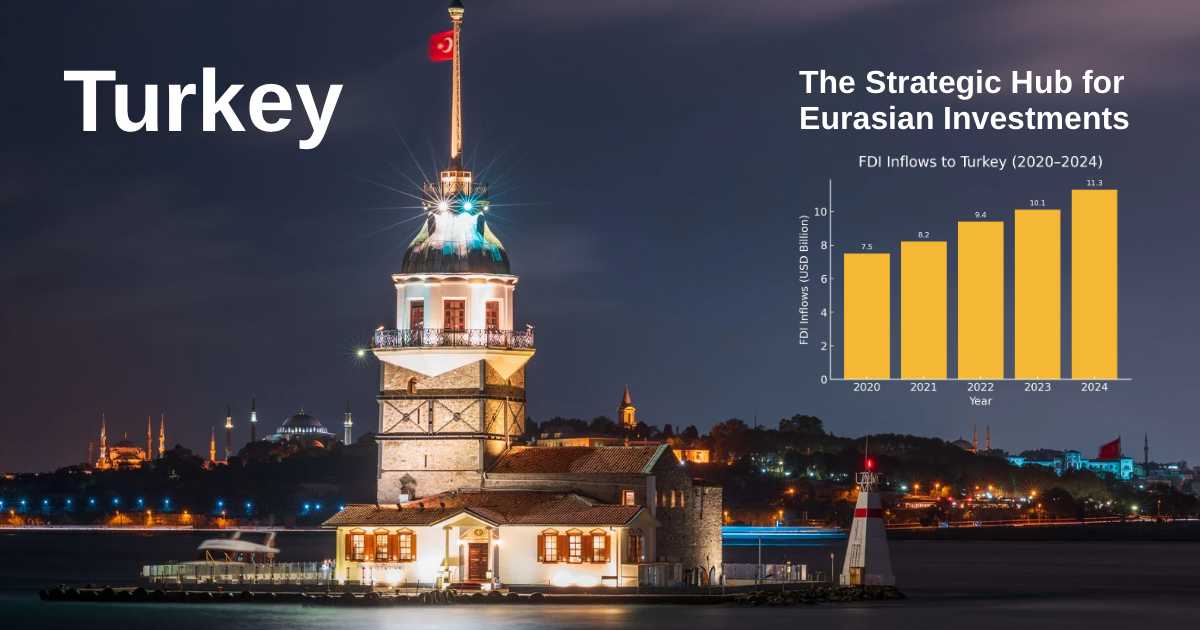
Turkey’s Investment Landscape: A Geopolitical, Financial, and Strategic Analysis for Chinese and Arab Investors (2025)
As of 2025, Turkey continues to offer a unique mix of opportunities and risks for Chinese and Arab investors, driven by its strategic geopolitical location, young demographic profile, and emerging market dynamics. However, informed investment decisions require a comprehensive analysis of Turkey’s current political structure, financial markets, and societal dynamics. Turkey’s increasing significance within the Eurasian region directly aligns with the strategic objectives of both China’s Belt and Road Initiative (BRI) and the Arab world’s economic diversification programs such as Vision 2030. According to data from the China Global Investment Tracker (2024), Turkey ranked among the top ten countries for BRI-related investments in 2024, with total FDI exceeding USD 3.2 billion. Similarly, Arab countries, particularly members of the Gulf Cooperation Council (GCC), invested approximately USD 5.7 billion in Turkey’s real estate, healthcare, agriculture, and tourism sectors in 2024 (JLL MENA Real Estate Outlook, 2024). Geopolitically, Turkey’s location presents both strategic advantages and inherent uncertainties. On one hand, its NATO membership and Customs Union relationship with the European Union provide privileged access to Western markets. On the other hand, its expanding relationships with China, Russia, and Central Asia position Turkey as a critical hub within emerging multipolar networks (Brookings Institution, 2024). Nevertheless, security threats stemming from Syria and Iraq, tensions over Eastern Mediterranean energy resources, and domestic political polarization represent key geopolitical risks (Economist Intelligence Unit, Turkey Risk Report, 2025). In financial terms, Turkey has pursued tight monetary policies in 2024–2025 to combat high inflation. As of April 2025, the Central Bank of the Republic of Turkey (CBRT) maintains a policy rate of 50%. Annual inflation stands at 67% (Turkish Statistical Institute, March 2025). Moody’s 2025 Turkey Report forecasts that inflation could decline below 25% by 2026, offering a potential stabilization trajectory. Despite high inflation and interest rates, the depreciation of the Turkish Lira has turned Turkey into a “buyer’s market” for foreign investors. Real assets such as real estate, tourism facilities, and industrial zones offer significant discounts in USD and EUR terms. According to Eurostat (2024), labor costs in Turkey are 31% lower than the European average, providing a competitive advantage for industrial and manufacturing investments. For Chinese investors, Turkey serves as a strategic center for logistics, e-commerce infrastructure, industrial zones, and energy projects. Major companies such as Huawei and Alibaba have expanded their operations in Turkey (South China Morning Post, 2024), underlining the country’s appeal as a gateway to the Middle East, Africa, and Europe. Meanwhile, Arab investors are increasingly targeting real estate, healthcare tourism, and agricultural sectors, with property acquisitions in cities like Istanbul, Antalya, Alanya, and Bodrum rising by 22% in 2024 (Knight Frank Middle East Report, 2024). Regarding societal perception, Turkey generally maintains a positive attitude toward foreign investment, although sectoral sensitivities persist. According to Oxford Analytica (2024), Chinese investors are associated with technological prowess, while Arab investors are perceived more favorably due to cultural and religious affinities. Nevertheless, intensive real estate acquisitions have occasionally triggered concerns about the transfer of national assets, emphasizing the importance of socially responsible projects that contribute to local employment and community engagement. Strategic opportunities for 2025 and beyond include digital transformation, green energy investments, healthcare tourism, and advanced manufacturing. Turkey’s alignment with the European Green Deal framework (European Commission, 2024) is expected to generate new incentives for energy efficiency and sustainable investments. Furthermore, Turkey’s role as an investment hub for reaching African and Middle Eastern markets enhances its strategic appeal for export-oriented projects. Conversely, key risks that investors must navigate include persistent inflationary pressures, currency volatility, domestic political tensions, and regional security threats. Long-term investment strategies, careful sector selection, strong local partnerships, and proactive financial risk management are essential to mitigate these risks. In conclusion, Turkey’s current geopolitical and financial landscape presents both high-risk and high-reward dynamics for Chinese and Arab investors. Investors who carefully analyze macroeconomic indicators, political trends, and social dynamics — and who commit to sustainable, culturally sensitive, and strategic investments — are well-positioned to capitalize on Turkey’s long-term growth potential.
28 April, 2025
Real Estate 5.0: Technology and Human-Oriented Transformation in the Real Estate Sector
The real estate industry has undergone major changes since the industrial revolution. Especially in the 21st century, transformation in the real estate sector has accelerated with digitalization, big data analytics and smart city concepts. In recent years, the effects of Industry 5.0 have also been reflected in the real estate sector. This article examines how it has revolutionized the industry by defining the concept of 'Real Estate 5.0'. Real Estate from 1.0 to 5.0: The Evolution of the Sector • Real Estate 1.0 (1950-2000) – The era of traditional real estate, paper listings and one-on-one customer interviews. • Real Estate 2.0 (2000-2010) – Online real estate sites and the start of digital marketing processes. • Real Estate 3.0 (2010-2020) – Mobile apps, digital data analytics, and virtual tours. • Real Estate 4.0 (2020-2025) – Use of blockchain, artificial intelligence and big data. • Real Estate 5.0 (2025 and beyond) – Smart cities, internet of things (IoT) and sustainable digital ecosystem. Technological Components of Real Estate 5.0 Artificial Intelligence and Big Data Analytics Real estate price forecasts, customer analysis, and personalized recommendations. Blockchain and Smart Contracts Secure record keeping and fraud prevention in title deed transactions. Metaverse and Virtual Reality (VR) Virtual tours and 3D modeling in real estate investments. Internet of Things (IoT) and Smart Cities Smart building systems and environmentally friendly energy management. Green Buildings and Sustainable Projects Low carbon emission, energy-efficient buildings.
24 January, 2025
What Happened in the Turkish Real Estate Sector in 2024?
Turkish Real Estate Sector in 2024: In-Depth Analysis, Problems and Opportunities The Turkish real estate market has experienced major changes in 2024. Economic fluctuations, changes in interest rates, decrease in housing supply, foreign investor interest and urban transformation projects directly affected the sector. As we enter 2025, we analyze these developments in depth and evaluate the opportunities and risks for the future.Housing Market Outlook for 2024The year 2024 has been a year in which housing prices have risen but demand has fallen due to loan interest rates.- Housing prices in metropolitan cities such as Istanbul, Ankara, and Izmir increased by 20-30%.- Due to high interest rates, the use of housing loans decreased, and there was a significant increase in cash purchases.- Housing has become difficult to buy for the middle and low-income segment, so the rental housing market has become more active.The most important problem of the housing market was that price increases rose much faster than income levels. Residential accessibility has become a major problem, especially in big cities.Problems:- Difficulty in accessing financing due to high interest rates on housing loans.- Inadequacy of new housing projects and inability of supply to meet demand.- The rapid increase in rental housing prices, making it difficult to obtain housing, especially for the young population.Opportunities:- Great discounts offered by contractor companies for cash purchases.- Formation of new investment areas with the acceleration of urban transformation projects.- The spread of alternative financing models (installment payment plans, real estate funds).The Place of Foreign Investors in the Turkish MarketThe year 2024 has been an eventful year for foreign investors. Real estate purchases in Turkey by Middle Eastern, Russian and European investors have increased.- The citizenship-for-citizenship, housing investment program is still gaining traction, but raising the price cap has reduced demand in some areas.- Foreign investor interest continued in touristic regions such as Istanbul, Antalya, Bodrum, Fethiye and Alanya.Problems:- Frequent changes in regulations for foreign investors create uncertainty in the sector.- Due to foreign investor interest in certain areas, prices have risen excessively and accessibility for locals has decreased.Opportunities:- Turkey still has attractive price advantages for Europe and the Middle East.- Cities with high rental income offer great opportunities for foreign investors.Urban Transformation and New ProjectsIn 2024, urban transformation projects in Turkey gained momentum. Transformation projects were prioritized, especially in regions with high earthquake risk.- Large-scale urban transformation projects have started in Kadıköy, Beşiktaş, Maltepe and Bağcılar districts of Istanbul.- In cities such as Ankara and Izmir, the transformation of old buildings has accelerated.Problems:- Due to financing problems in urban transformation projects, some projects were delayed.- The fact that the transformation projects are not fully compatible with urban planning has created new traffic and infrastructure problems.Opportunities:- Entry of new housing stocks into the market with renewed projects.- Increasing opportunities for affordable housing investment in urban renewal areas.Changes in the Commercial Real Estate Industry in 2024The year 2024 has brought significant changes in the commercial real estate market.- Occupancy rates in shopping malls have increased, especially the fact that e-commerce brands have turned to physical stores has made shopping mall investments attractive again.- Warehouse and logistics investments grew. Interest in logistics centers has increased, especially due to the increasing demands of the e-commerce sector.- Vacancy rates remained high in the office market due to the hybrid working model.Problems:- There are still great uncertainties in the office rental market.- Access to finance for small-scale commercial investments has become difficult.Opportunities:- With the growth of e-commerce, logistics and warehouse investments offer high returns.- Increased demand for small-scale commercial units in central locations.Prospects and Recommendations for 2025The year 2025 will be a year in which opportunities and uncertainties are intertwined in the real estate market.- If interest rates fall, the housing market may start to move again.- Alternative investment vehicles (real estate funds, lease certificates) may be more prominent.- Commercial real estate investments can offer attractive opportunities, especially in the logistics sector.For those who want to invest in real estate in Turkey, the year 2025 contains both risks and opportunities. You can closely monitor the market on HepsiProje.com to keep up with current projects and investment opportunities!
20 January, 2025
Real Estate 2024
Real estate market prospects for 2024 remain uncertain in the shadow of a complex interplay of global and local economic conditions. In this article, we will examine the key factors that may affect the real estate market in 2024 and provide detailed information on regional differences, recommendations for investors, and projected trends in order to guide investors. Global Economic Conditions Uncertainties in the global economy and the risk of a possible recession can have a significant impact on the real estate market. A recession, especially in developed economies, can also negatively impact the real estate market in Turkey by affecting investment flows and lowering property prices. Inflation and Interest Rates High inflation will continue to push house prices and rental prices up. Increases in interest rates, on the other hand, can reduce purchasing power by raising mortgage costs and lead to a recession in the real estate market. Domestic Policies Policies on housing and financial markets to be taken by the government can significantly affect the market. For example, incentives to increase the supply of housing or reductions in mortgage interest rates can stimulate the market. Population Growth and Urbanization Population growth and urbanization trends will continue to put upward pressure on housing demand. The increase in demand for housing, especially in big cities and tourist areas, can also lead to an increase in prices. Regional Differences Developments in the real estate market may differ by region. While housing prices are expected to continue to rise in major cities and tourist areas, prices are projected to be more stagnant in small cities and rural areas. Recommendations for Investors: Comprehensive Research: Before investing, it is important to research the market situation of the region, housing prices, rental prices, and population movements in detail. Long-Term Perspective: Real estate investment is a long-term investment. It's important to invest with a long-term perspective without getting hung up on short-term fluctuations. Diversification: It is important not to concentrate all your investments in a single region or property type to minimize risk. Expert Support: Before investing, it would be beneficial to seek advice from an expert in the real estate market and financial issues. Projected Trends: Demand for Rental Housing May Increase: Rising housing prices and interest rates can make it more attractive to be a renter. Second-Hand Housing Sales May Increase: The increase in interest rates can make it difficult to buy new housing, which can increase the demand for second-hand housing. Investors May Gravitate to Alternative Property Types: Investors may start to turn to alternative types of real estate, such as offices, warehouses , and student dormitories. Points to note: The real estate market is a highly volatile market, and predictions may not always turn out to be accurate. It is important to carefully consider the risks and rewards before investing. It is worthwhile to seek advice from an expert before making any investment decisions. Recommendations by Investor Types: First-Time Investors: For first-time real estate investors, it may be appropriate to invest in residences with relatively lower risks and returns. In addition, investing in small cities or developing areas can offer the possibility of finding more attractive prices. Experienced Investors: Experienced investors can invest in different types of properties in accordance with their risk profile and investment goals. For example, they may invest in commercial real estate, such as an office or warehouse, to earn higher returns. Foreign Investors: Investing in real estate in Turkey can be an attractive option for foreign investors. Before investing, it is important to research the legal regulations and taxation system applicable to foreigners in detail. Risks Related to Real Estate Investment: Market Risks: The real estate market is a highly volatile market, and prices can be subject to sudden fluctuations. Interest Rate Risk: Increases in interest rates can negatively impact investors' returns by raising mortgage costs. Liquidity Risk: Real estate investments are illiquid investments. Therefore, investors may find it difficult to sell their property quickly when they need money. Advantages of Real Estate Investment: Passive Income: Real estate investment offers the opportunity to earn passive income through rental income. Inflation Hedge: Property prices generally tend to increase in line with inflation. Therefore, real estate investment offers the possibility of protection from inflation. Long-Term Investment: Real estate investment is a long-term investment. That's why it's important to invest with a long-term perspective without getting hung up on short-term fluctuations. As a result, the prospects for the real estate market in 2024 remain uncertain. It is important for investors to research the market in detail, carefully consider the risks and rewards, and seek advice from an expert before investing.
13 February, 2024
ChatGPT, Bard and the Use of Artificial Intelligence in Real Estate: What to Expect in the Future
Artificial intelligence (AI) is widely used in many industries today. The real estate sector is one of these sectors. AI is being used in a variety of ways in the real estate industry, and these use cases are becoming more extensive and more detailed. Customer service AI is one of the most common AI applications that can be used to improve customer service. AI-powered chatbots can be used to answer potential customers' questions and provide information. This allows real estate agents to use their time to focus on more important tasks. AI-powered chatbots are available 24/7 and can respond to any question. This allows potential customers to get help at any time of the day or night. AI-powered chatbots can also be used to better understand the needs and wants of potential customers. This can help real estate agents provide a better customer experience.
01 February, 2024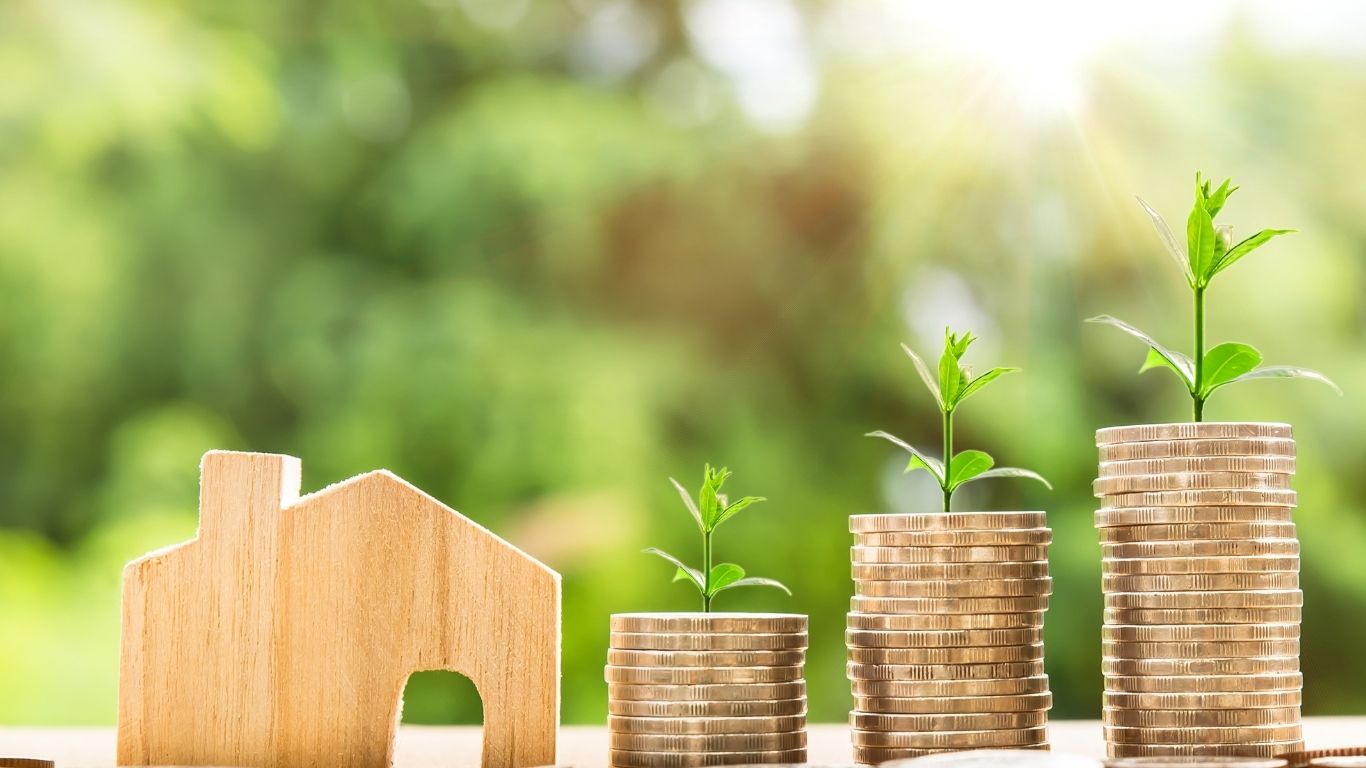
Real Estate: A Profession That Changes People's Lives
Real estate is an exciting and rewarding profession that helps people achieve their dreams of owning a home. Real estate agents understand their clients' needs and wants, helping them find properties that suit them and complete their buying or renting process. One of the beautiful things about the real estate profession is that it offers the opportunity to change people's lives. Real estate agents work to improve the lives of their clients and help them find their dream home. This can be a meaningful experience, both materially and spiritually. Another good thing about the real estate profession is the opportunity to meet people and build new relationships. Real estate agents build close relationships with their clients and are involved in their lives. This can be a fulfilling experience, both personally and professionally. The real estate profession also provides an opportunity to use creativity and problem-solving skills. Real estate agents have to find new solutions to meet the needs of their clients. This can be an experience that is both mentally and emotionally satisfying.
23 January, 2024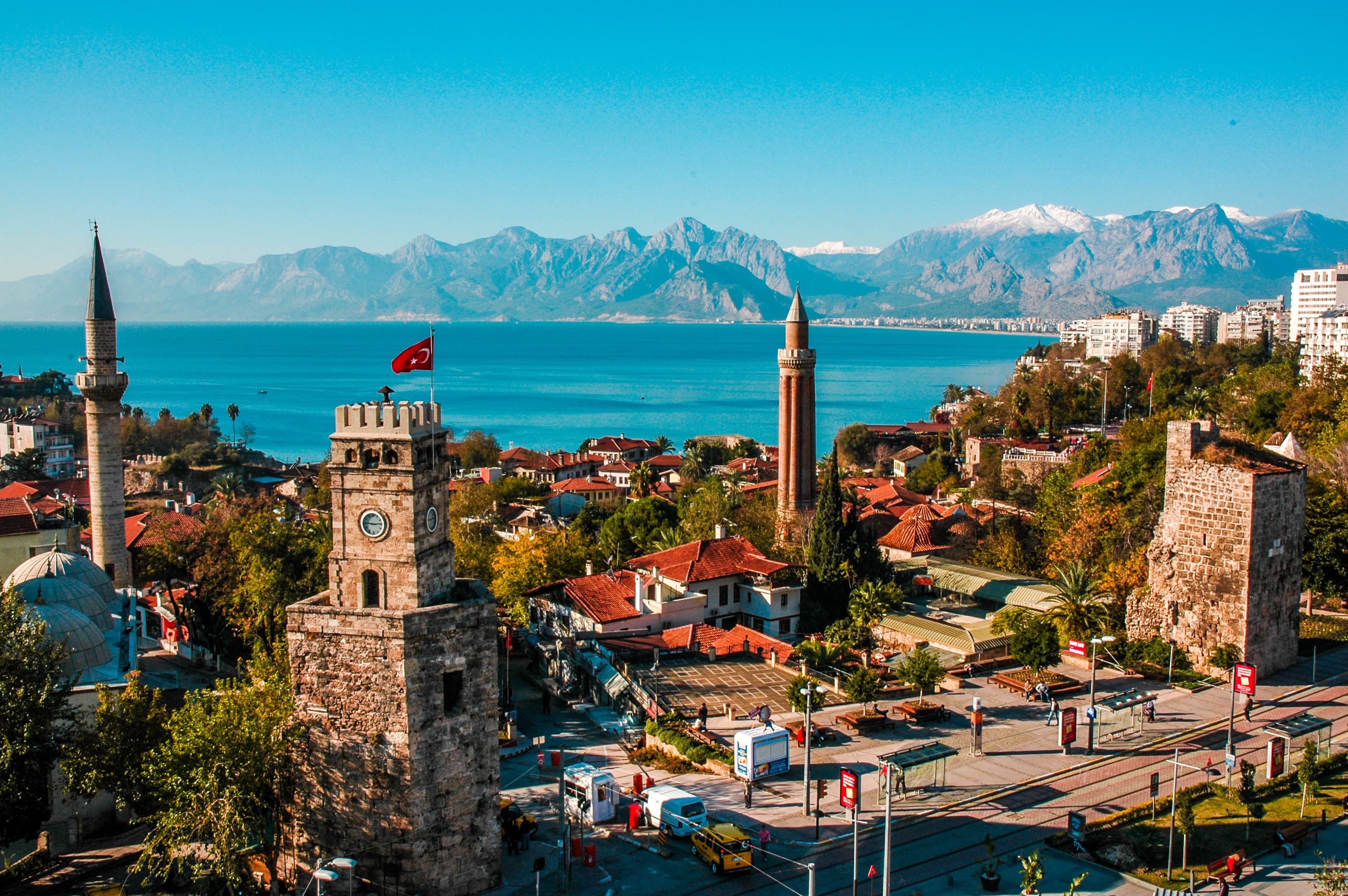
Paradise Where Sea, Sand, Sun and Green Nature Blend with History and Culture: Antalya
In today's article, we will talk about Antalya, one of the most popular and popular cities in Turkey, which is a matter of curiosity for hundreds of thousands of people from Europe, Asia and the Middle East.
15 January, 2024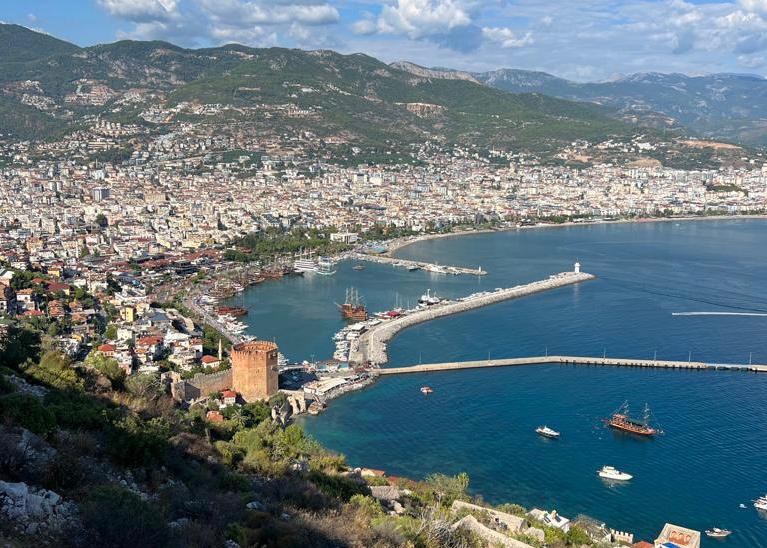
Why Do Russians Want to Live in Alanya?
Alanya is located on the Mediterranean coast and is one of the most popular tourist destinations in Turkey. In recent years, it has been observed that the Russian population living in Alanya has increased significantly. An in-depth analysis of the reasons behind this increase will help us better understand the motivations behind Russians' preference for Alanya.
13 January, 2024
Recommendations for the Use of Artificial Intelligence for Real Estate Agents
Artificial intelligence (AI) has become a rapidly evolving trend in the real estate industry. The various tools and solutions offered by AI can help real estate agents do their jobs more efficiently and effectively. This article will provide some suggestions on how real estate agents can benefit from AI.
13 January, 2024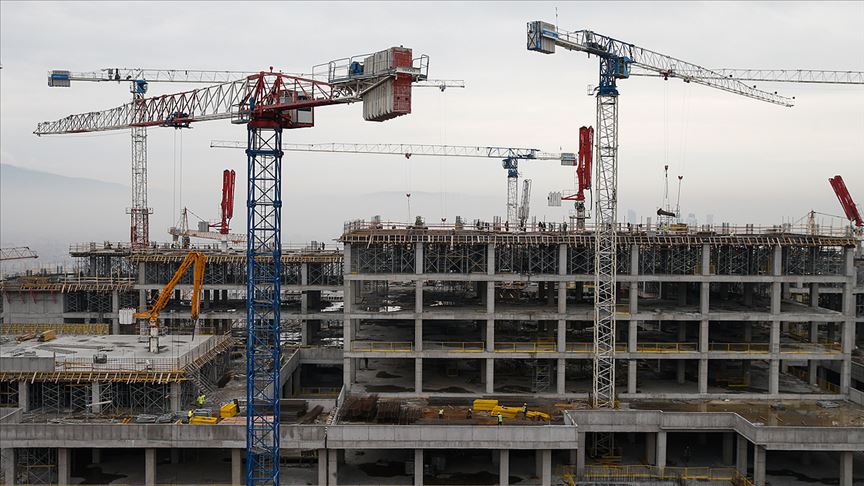
With these advantages, it is much easier to make a decision!
Advantages of Buying a House from Construction
03 January, 2024
Russian-Ukrainian War, Migration Wave, and Real Estate Investments in Turkey
Russian-Ukrainian War, Migration Wave, and Real Estate Investments in Turkey
25 December, 2023
Qatari Investors' Approaches to the Turkish Real Estate Sector
Turkey, with its historical richness, cultural diversity, and strategic location, has been a destination that has attracted the attention of international investors for many years. In recent years, it has been observed that Qatari investors have shown an increasing interest in the Turkish real estate sector, especially among investors from Middle Eastern countries.
25 December, 2023
Why Aren't House Prices Rising As Much As They Used To?
Despite the current high inflation, housing prices have not increased as much as before. What is the reason for this? This is one of the most frequently asked questions in recent days. There are several reasons why the crazy increase in housing prices has slowed down recently. The first of these is that inflation has slowed down, albeit due to the base effect. The second and most important reason is that sales have fallen. Housing demand has lost its former vitality in the last few months. We can monitor the development in housing sales from the graph below (the graph was prepared by me using the data from TurkStat, Housing Sales Statistics Newsletter, February 2023.)
15 November, 2023
10 Best-Kept Secrets for Buying a Home
Get the most out of your money with these handy home-buying tips.
13 November, 2023
The Richest Real Estate Billionaires In America 2023
Higher interest rates and work-from-home policies may have taken a toll on commercial real estate, but America’s richest property barons are wealthier than they were last year.
04 November, 2023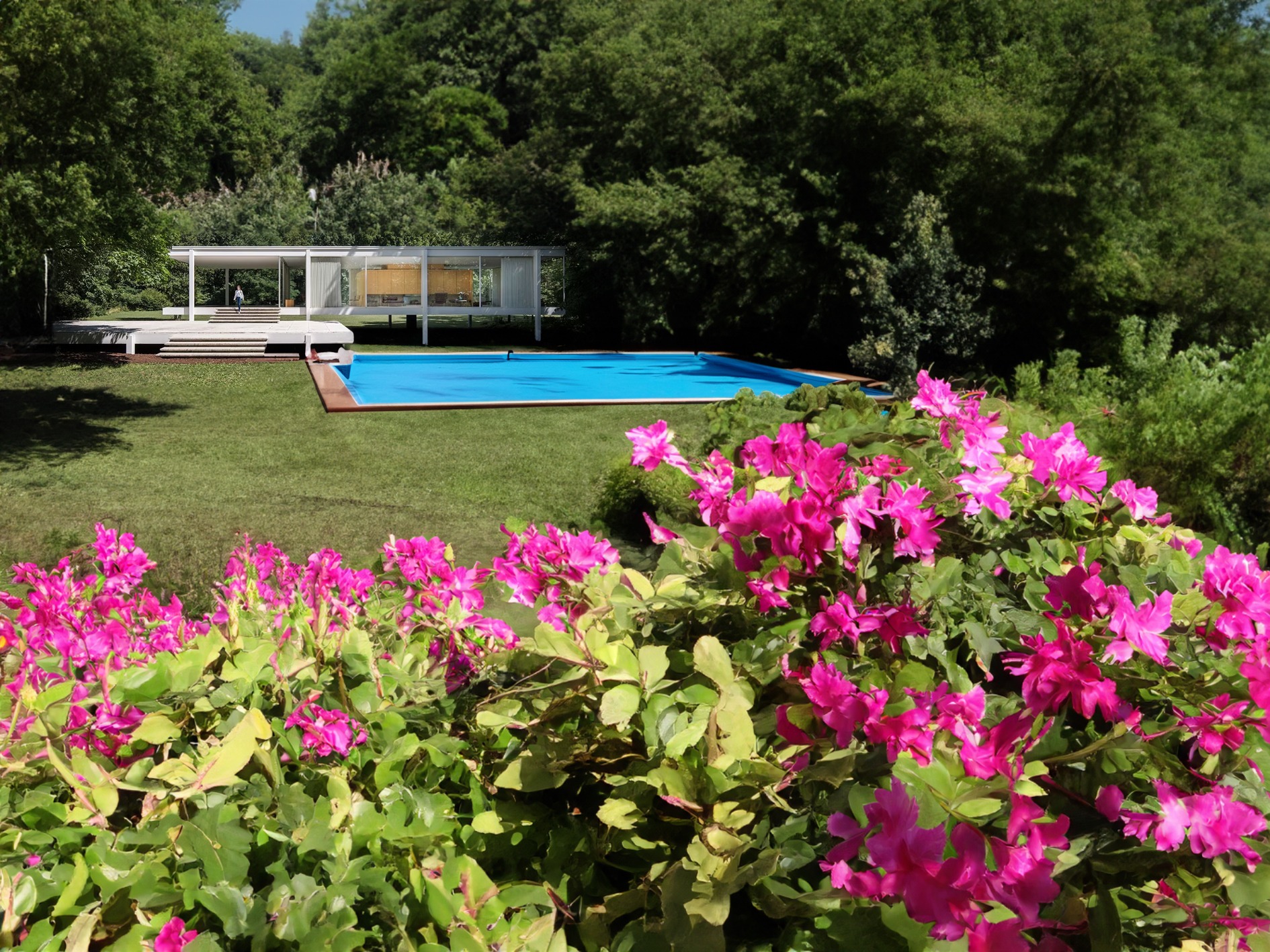
Real Estate: Asking Prices Plummet as Mortgage Rates Hit 20-Year High – Is It Time to Buy, Sell or Stay Put?
The real estate market, always a dynamic and ever-shifting landscape, has recently witnessed a notable twist. As mortgage rates soar to unseen levels in two decades, home sellers reevaluate their asking prices. Money.com reported that the average 30-year fixed mortgage rate hit a two-decade high of about 7.65% as of September 27, 2023. Data suggested buyers are distressed and sellers have little choice but to lower their asking prices. Competition is cooling off “remarkably fast,” even for this slower time of year, according to a fall outlook report from the listing site Zillow.
04 October, 2023
